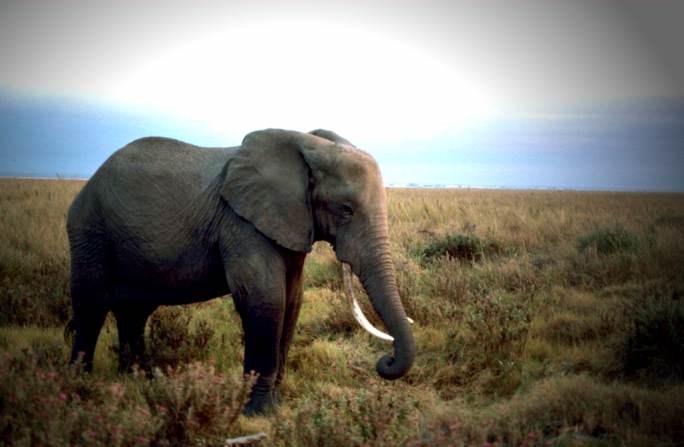leo oosterweghel
“We all remember the bad days – bored crocodiles, listless giraffes, monkeys indulging in recreational activities of an adolescent nature…”

Elephants in the wild spend 70% of their time looking for food. Now, just between you and I, and the readers of the Irish Times, if we gave the entire Phoenix Park to our elephants, but fed them in the one spot, they would just stand there. They wouldn’t move. They’re very careful about expending energy. So we hide the food on them. The elephant is never conditioned to look at his watch and say, it’s seven o’clock, where on earth is my dinner? Read the rest of this article.
“We all remember the bad days – bored crocodiles, listless giraffes, monkeys indulging in recreational activities of an adolescent nature…”
-
LEO OOSTERWEGHEL
Director, Dublin zoo
Could you tell us about yourself first of all?
Myself? Oh dear. I’m sixty years old. I’m originally from the Netherlands, hence my unpronounceable name. Sometimes I get a little cranky, especially in the mornings. And ever since I could open my eyes, I’ve been fascinated with wildlife.
The zoo is home to over 600 exotic animals. Almost a million visitors came through the gates last year. What are your responsibilities exactly?
I oversee. The zoo employs 85 people. We have a finance department, retail, horticulture, veterinary, animal care, ticket office… Dublin is part of a network of zoos worldwide that works for the conservation of species. But it’s also a business. Last year we took in €10m. It costs €9m to run the place, so we’re in the black.
You’re sure you should boast about that? Couldn’t someone from An Bord Snip be reading?
This is the final year of our support from the Office of Public Works. But we have a very strong business foundation to continue. If you look at our press clipping from the 1980s, the zoo was unkempt and struggling. People were critical and rightly so. But with support from the OPW, we’ve managed turned things around.
We’ve all been to bad zoos – bored crocodiles, listless giraffes, monkeys indulging in recreational activities of an adolescent nature… How do you convince an elephant, say, just to snap out of it?
It’s called environmental enrichment. Elephants, in the wild, spend 70% of their time looking for food. Now, just between you and I, and the readers of the Irish Times, if we gave the entire Phoenix Park to our elephants, but fed them in the one spot, they would just stand there. They wouldn’t move. They’re very careful about expending energy.
So what, you hide food on them?
Yes, we hide the food in different places. There is sugar beet buried in one location, hay hanging from a tree somewhere else. Even inside, the shutters to their feed boxes open at irregular times, so that the elephant is never conditioned to look at his watch and say, it’s seven o’clock, where on earth is my dinner?
In the first episode of The Zoo, your reptile expert has to wrestle a crocodile in order to give it a medical examination. What would possess any sane person to do that for a living?
When we hire, we look for mildly eccentric people. I’m quite serious, we look for people with that twinkle in their eye. People with an obvious passion for wildlife: They’ve kept fish. They go birdwatching. Those are the people we hire.
Walking around the African plains here, I’m wondering – what did all of these animals do during the heavy snow of last December?
All of these animals have generously proportioned houses, so we had to keep them inside for the day. If the sun came out for an hour or so in the afternoon, we might allow them out. I’ve been in Ireland ten years and I’ve never experienced a prolonged period of snow and ice like that. But we managed.
When I was a child the panda was the big box office draw here. Who’s the star attraction these days?
Traditionally, the most appealing animals are primates, because they remind us of ourselves. And young animals too, of course, because that triggers the nurturing instinct of the human primate. We respond to the young animals. But it’s more holistic now. It’s not about the whole experience, not one star attraction.
In 1903, a zookeeper here was killed by an elephant. Several children have had fingers bitten off. Any decent horror stories lately?
Ireland has very stringent health and safety regulations now. So when you design something, you think about managing risk. The animals have more space today. We empower them. If the rhinoceros has a bad hair day, he doesn’t have to come out if he doesn’t want to. There is more distance and more safety. Now you have to invest a little time to walk around and see what you can see.
Finally, the zoo is 180 years old this year. Was environmental enrichment a priority in 1831 or what kind of operation were they running here back then?
The zoo was founded in 1831, So it is one of the oldest in the world. Vienna, Paris and London are older. It was a period in human history when mankind was still exploring, when there were still a lot of blind spots on the map. Back then, there was a scientific element. But there was also the fact that the population had never encountered any of these animals before. They kept one of each species in those days, whereas nowadays you design proper social groupings. The inspiration comes from the wild. That’s how you design a modern zoo.
